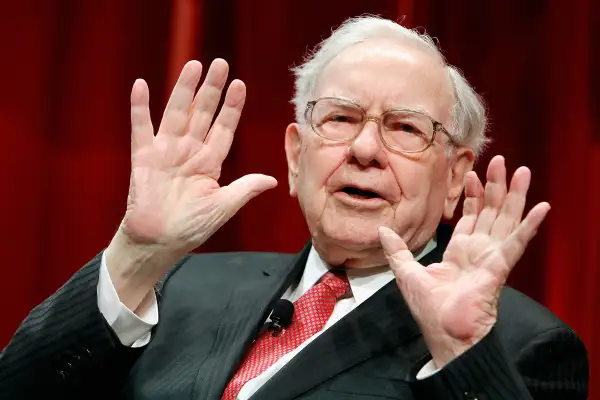Warren Buffett Says Presidential Candidates Are 'Dead Wrong' About America's Future

According to Warren Buffett, the world is not coming to an end, and the economy is not going to hell in a hand basket. On the contrary, the famously sage billionaire investor says, the children being born today are the "luckiest" in human history, and the average Joe today arguably lives a more pampered, comfortable life than the wealthiest people on earth a century ago.
You wouldn't know this if you only paid attention to politicians using fear tactics to generate voter interest, or to the many surveys indicating that today's youth don't think they'll be better off than their parents. But in his annual letter to Berkshire Hathaway shareholders, Warren Buffett turned on the sass and expressed his disapproval with everybody's negative attitude about the state of the economy and what the future holds for us all.
"It’s an election year, and candidates can’t stop speaking about our country’s problems (which, of course, only they can solve)," he wrote. And the "negative drumbeat" pounded by candidates running for office is flawed, and missing the larger point.
The view that American children will not be as successful and live as comfortably as their parents--a sentiment that's been around since at least 2011--is "dead wrong," according to Buffett. "The babies being born in America today are the luckiest crop in history."
From Buffett's perspective, which spans his 85 years-and-counting life span, the economy has grown considerably, and the country has improved spectacularly. The 2% economic growth that's often criticized as poor is actually good compared to the 0.8% population growth.
He does a little math: the growth margin between the two should result in a 34% gain over the next generation—a $19,000 increase in GDP per capita.
As to whether a select few rich individuals or man average American workers will experience this bounty amid growing economic inequality, Buffett demurred a bit, saying this point—which is probably the crux of the negative outlook overall rather than the growth rate—will "will remain fiercely contentious." It's not exactly the feel-good sentiment he led with, but in his view, "even members of the 'losing' sides will almost certainly enjoy—as they should—far more goods and services in the future than they have in the past."
Similar to the perspective offered by people like Steven Pinker that the modern world is in fact much better than the past, Buffett compared how improved the average standard of living is today compared to the past.
Read next: Warren Buffett's 15-Minute Retirement Plan
"[John D.] Rockefeller certainly had power and fame; he could not, however, live as well as my neighbors now do," wrote Buffett. "His unparalleled fortune couldn’t buy what we now take for granted, whether the field is—to name just a few—transportation, entertainment, communication or medical services."
After elaborating on how televisions have become more affordable and the Internet far more accessible Buffett reaffirmed his advice: "For 240 years it’s been a terrible mistake to bet against America, and now is no time to start. America’s golden goose of commerce and innovation will continue to lay more and larger eggs."